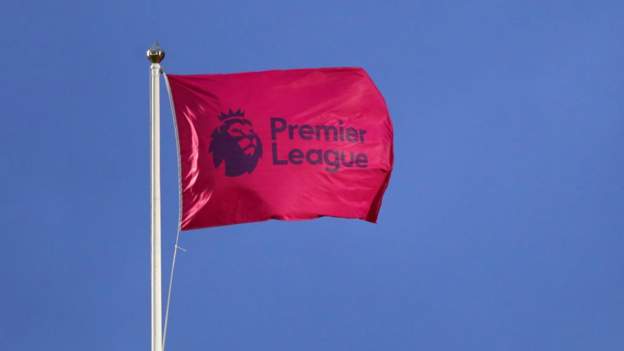Nottingham Forest’s victory over Leicester City in the FA Cup at the weekend was interrupted by a fan coming on to the pitchCocaine use is helping to drive a rise in disorder at matches in England and Wales, says the country’s lead police officer for football.
Fan incidents are also post-lockdown related, added the English Football League security chief.
This comes after the Premier League and EFL asked clubs to suggest ways to tackle anti-social behaviour.
“There is clearly an issue,” chief constable Mark Roberts told BBC Radio 5 Live.
The most recent incident saw a Leicester City fan run on to the pitch and approach Nottingham Forest players during an FA Cup game on Sunday.
In the wake of trouble around his side’s derby against Crystal Palace last month, Millwall chief executive Steve Kavanagh said they had received “numerous reports of drug taking in toilets”.
Roberts added: “We know incidents in the first half of the season are up by 36%. We know arrests are up by 38%. When we look at arrests for schedule one offences, things specifically referencing in the football acts and banning order acts, that’s 802.
“But 901 arrests in total, the vast majority of these in addition are for cocaine use as well. It’s a significant problem, a contributory problem. It is one of the factors that’s leading to the increase in disorder we are seeing this season.”
Suggesting ways to target the issue was one of eight questions the leagues posed to clubs.
Recent police data showed arrests at football matches across the top five English leagues are at their highest levels in years, with fan disorder said to be “getting worse”.
The latest data – released to BBC Sport in January – covers the first half of this season, which has seen the return of fans to capacity stadiums after a year of lockdowns and restrictions.
There have been more than 800 football-related arrests in the first six months of the season, alongside more than 750 reported incidents of disorder.
However, the Football Supporters’ Association has accused Roberts of “banging the drum of moral panic” when it comes to the issue of drug use in order to get more funding. He refuted the claim, though, and said the organisation needs to be a voice to fans who are being affected by the problems.
Roberts added: “I think I’ve been clear. I’ve tried to separate the issue of funding away from tackling this issue. I would like to see the FSA giving a voice to those supporters [who feel intimidated to go to away games] as well as being apologists for hooligans.”
EFL addresses growing return of fan disorder to gamePremier League to speak with FA, EFL and police amid rise in fan disorderFootball disorder on the riseDr Martha Newson, an expert in football fan behaviour from Oxford University, added cocaine issues aren’t exclusive to football and it’s a society-wide problem.
“Cocaine use is on the up but that’s not just in football, that’s everywhere, that’s across classes and industries. It’s not appropriate to make a moral panic about football specifically. As it often does, football is holding up a mirror to wider society.”
The questions sent to clubs include whether they have experienced an increase in incidents of anti-social behaviour and disorder this season and, if so, which issues have increased, at what locations and from which groups of fans.
Clubs are also asked what data they collect on the incidents and who they share it with, any additional measures they have taken, and how satisfied they are with stewarding and policing at their stadium.
It is hoped the answers will create an idea of the patterns of behaviour, which will make disorder easier to address, with the prospect of creating a central data repository to share good practice.
EFL’s head of security Bob Eastwood said: “I would describe it as the leagues working together collectively with a shared mission to understand people’s behaviour – as they have come back from a length period where they have not been allowed in stadia – and why some have come back and started behaving very badly.”
But he added it isn’t just football which is experiencing anti-social behaviour.
Eastwood said: “There are media reports in relation to rugby where they have started selling alcohol with a lower strength to try to have a positive impact on levels of bad behaviour.
“One of our safety officers also works in tennis, and some in cricket, and they have also experienced the same problems.”
‘It belongs to all of us’: Join us in celebrating 100 years of informing, educating and entertainingFrom Sheffield to the Beijing mountains: Follow a group of Team GB freestylers in their preparations for the 2022 Winter Olympics

